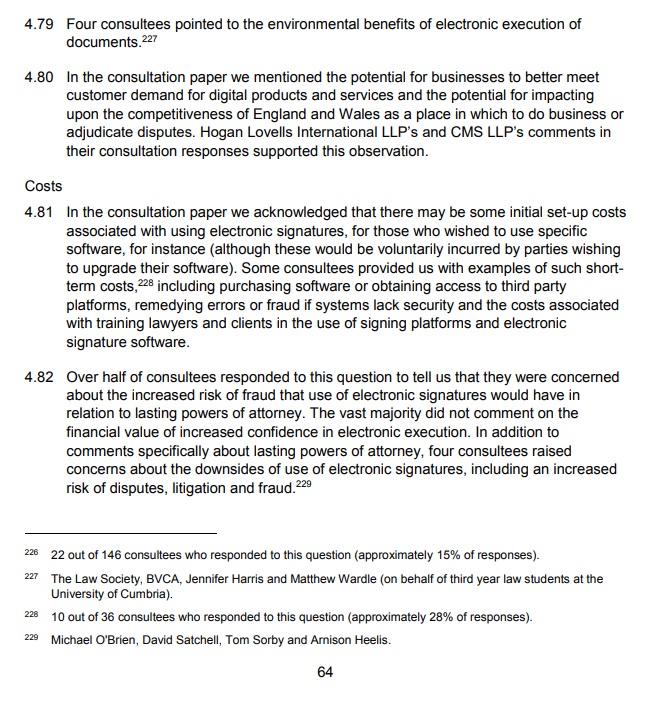
What are electronic signatures?
Electronic signatures (e-signatures) are symbols or other data in digital form attached to a document as verification. In a government study the commission have now confirmed that e-signatures are equal to handwritten signatures. This project came out of the 13th Programme of Law Reform and started in January 2018. This conclusion emerged as part of a 124-page study of statute, common and case law. If you are too busy to read the full report, a summary was also published. The commercial and common law commissioner provided clarity on the legal position of the electronic execution of deeds.
“Our report aims to provide an accessible statement of the law which makes it clear that an electronic signature can generally be used in place of a handwritten signature as long as the usual rules on signatures are met.”
Commissioner Stephen Lewis (on behalf of the Law Commission)
The findings of the report in further detail
The report confirmed that an e-signature is capable in law of executing a document (including a deed). This is provided that the person signing intends to do so and that any further required formalities, such as a witnessing and intention are satisfied. The implications of this are huge, and it could revolutionise the way in which deeds are signed moving forward. Environmentally speaking, it could reduce the amount of paper wasted on wet signed documents when a digital alternative could be equally as effective. This could be more convenient for the client in a digital age.

The concerns for LPAs and addressing the issues
The Law Society warned that a rush to encourage people to apply for lasting powers of attorney could put individuals at risk. The Office of Public Guardian and the MoJ must first consider what is sufficiently secure and reliable for donors before introducing any system using electronic signatures. Consultees were concerned that a rise in digital signatures could lead to an increase in fraud and disputes.
Businesses and individuals sign millions of contracts electronically every day. With the rise of cryptocurrency and smart-contracts in commercial matters in addition to this, the legal world has become more digital than ever before. The validity of electronic signatures has always been questioned to an extent, and this was why this consultation was commissioned. Despite giving the go ahead, the commission makes several recommendations. These were to address some of the practicalities of electronic execution and the rules for executing deeds. These include:
- Setting up an industry working group, to consider practical and technical issues around electronic signatures and provide best practice guidance for their use in different types of transactions.
- Video witnessing for deeds – the industry working group should look at solutions to the practical and technical obstacles that exist to video witnessing. Following this work, the government should consider legislative reform to allow for this.
- A future review of the law of deeds, to consider broad issues about the effectiveness of deeds and whether the concept remains fit for purpose and specific issues which have been raised by stakeholders. The review should include deeds executed on paper and electronically.
Concluding remarks
The law relating to signatures and other formal documentary requirements has a history spanning centuries. Individuals demand convenient methods for entering into binding transactions and this is why so much has been done to strengthen digital signatures.
T: 01228 739 907


